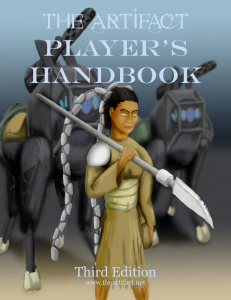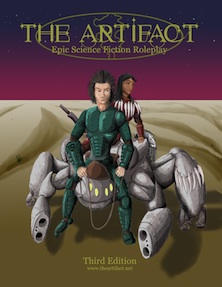If you’re unfamiliar with the RPG Gumshoe, the central premise is that failure is usually less interesting than success. An investigator in the system, automatically gets clues if they apply the right ability, because not getting the clue is can stop the story dead in its tracks.
This always struck me as wrong. I couldn’t quite pin down why, it was definitely wrong. But why?
It’s the automatic success that bothered me. It does eliminate the problem of a game that has stalled because of a failed roll. In this case you have a problem with information flow so Gumshoe yanks off the valve that controlled it and declared the problem solved.
The solution is also not leaving the status quo. If the flow of a game stops, adjust the valve, open it up a bit more.
The premise for removing rolling is that for investigation stories, you don’t see the characters fail to collect clues. But that’s not true. There are plenty of times when Sherlock Holmes doesn’t get the clue. There are plenty of times when the Enterprise crew pass over information because they don’t know what to do with it, until later.
There are times when it’s just an issue of not having the right skill set but Gumshoe addresses that. I mean that there’s a skill that the character has and the clue is beyond them.
So I disagree with Gumshoe. It solves a problem, but not in a way that properly sets up the fiction.
What am I going to do about it? Propose a better solution. It’s one thing to disagree, it’s another to bring your own solution to the table.
Ask yourself, what is the most robust system in most RPGs? Combat. Most games spend an inordinate amount of time on combat and it’s effects. One reason for this is, it works. The most developed part of the game is also what attracts many players.
How well would combat work if you got one roll to take down a foe and if you failed, you cannot beat them? That would be a strange and very different game. Yet that’s what a lot of skill tests are in games. They were secondary to the early RPGs and so designed to get out of the way quickly. If you want skills to be more important to your game, they must have a more robust system.
There could be any number of things that you could do to model skill. My assertion is to go with what has been tried and tested. A contest that depletes a less skilled person’s resources faster than a skilled person. A contest that is not solved by a single roll. A contest that establishes how a person with that skill, overcame the test. This is basically what combat is in most games.
Let’s apply that to an investigation. The skills in use are not really in question, they can stay as is. The amount of skill can also remain the same for whatever game system you’re using. What resources are involved in an investigation? Usually the big one is time. The other is effort, a highly skilled investigator needs to put out less effort to get the same result as a less skilled investigator. Given infinite time and effort, it would seem that any investigation should be solvable.*
Is the investigation going to be solved by a single roll? No, that would be dull. Should each clue be discovered by a single roll? Maybe some, but not all. Each roll takes time, effort or both. Failure takes more time and effort without delivering results, while success delivers. Each clue has a certain resistance to being found. It would have a difficulty value that is worn down as rolls are passed. When the difficulty is zero, the clue is discovered
How much time and effort should a roll cost? If we use combat as a model, and damage as our model, some games have variable damage while others have a constant amount of damage. So maybe the result of a failure costs a variable amount roll a die for how many minutes or hours, maybe it’s constant. That’s up to taste.
Effort is the x factor here. Some games have fatigue mechanics, many don’t. But really, if you have more time, you can output more effort because you can rest and recoup. For games without fatigue mechanics, more time can be substituted but it misses the same in game impact of character’s getting worn out and still trying to push through the story.
That’s the mechanical end, how does this work out for the story? Each attempt at a roll gives a bit of how the investigators work at solving the puzzle. What skills were used? How hard a time did they have? Those have all been answered at this point by the system. There is still the question of how the clues get put together to solve the mystery. Should the players be given this task, or should they be able to use character skill?
The answer I like best is that if the players figure out how to assemble the clues, it costs them nothing. If they use their character’s ability, it costs them more time and effort. Again, assign the “solve” a difficulty number. If the players guess something right, it lowers the number. If they want to roll, that’s fine, but it will cost them. In order for the costs to really matter, there has to be a final showdown where the character uses whatever is left over to seal the deal, to get a confession, to convince the police chief, to finally track down the culprit. This way there’s an incentive for the players to think it out, but if they’re stuck they can still work out a solution.
This is really the same way I modeled Tech Challenges in the Fraction Column system for Artifact. It’s also how the energy system is put together. So, yeah, this is my solution, but I feel it matches the stories that I’m familiar with in mystery fiction.
*Unless opposed by someone with equal or greater skill, time and effort.



 The Free RPG Blog
The Free RPG Blog